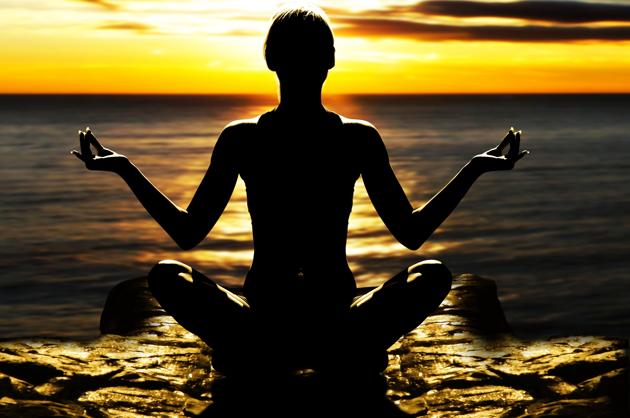We're nearing the end of our look at the yamas and niyamas of yoga. Next week, we'll learn about the final niyama, ishvara pranidhana, or devotion and surrender. Today we’ll look at the penultimate niyama, svadhyaya.
Study Spiritual Books
In Satchidananda's version of the yoga sutras, he describes svadhyaya as the study of holy texts. There's no text in particular that he recommends; in fact, it's up to you to determine what sacred texts are part of your practice. You could choose the Bhagavad Gita or the Bible. No matter what you choose, if you stay focused on your study, you will eventually get results.
This definition of svadhyaya is especially worth thinking about in light of the recent cases in Sweden and California. Parents who fear that an after-school yoga class will corrupt their children’s Christianity are missing the point—yoga is not a competing religion. In fact, it can be a way to deepen knowledge and faith of any religious belief. Though yoga asana originated as part of the Hindu religion, it’s not a religion in and of itself. It’s a system with spiritual elements that work across traditions. If you take your yoga practice seriously, it can be a great enhancement of your own religious or spiritual beliefs, no matter what tradition you’re affiliated with.
Study Yourself
More commonly, svadhyaya is describes as self-study. “Self-study” makes me a little uncomfortable—it sounds like encouragement to become a raging narcissist. Instead, we should use svadhyaya as an opportunity to keep our egos in check. Your relationships with the people around you are a great window into self-knowledge. How do you treat your superiors, or those who could be helpful to you? How do you treat the weak and vulnerable? Do you notice them at all? Do you take your spouse, family, or parents for granted? How do you react when things don't go your way? Are you a doormat? Do you ever take your frustrations out on others unfairly? There's no end to the self-interrogation that helps us grow in self-knowledge, but that’ doesn’t mean it’s easy to do.
A Yama Connection: Satya
When practicing svadhyaya, the biggest yama connection is to satya. When studying yourself, you have to be honest, even when you don't like what you see. Real self-knowledge requires truthfulness. Satya is not just honesty when we speak to others; it’s honesty in what we say to ourselves. We all have a vision of our ideal selves, but we can’t be our best self at all times. When you take a thorough look at yourself, you’ll be forced to see your flaws and shortcomings along with all your best qualities. Are you sometimes jealous? Lazy? Hateful? By turning a clear eye on yourself at all times, you’re opening yourself up to potentially unpleasant realities. If you’re humble enough to see your own flaws, you’ll be able to work on them.
A Niyama Connection: Tapas
Once you’ve begun to work on your weaknesses, you’ll be practicing tapas. The clarifying fire that we feel during a struggle leads to a purer, better self. It takes desire and self-discipline just to see one's own flaws, and major commitment to work through them. When we study ourselves and commit to becoming better, we come closer to the surrender of the final niyama, ishvara pranidhana.


